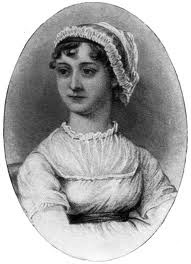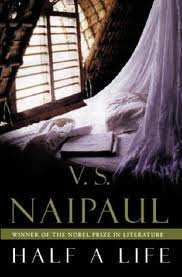Having just read Jane Austen’s PERSUASION, I moved on to another old friend, George Eliot’s MIDDLEMARCH. Apparently I am having some kind of literary high school reunion. While PERSUASION gets better as it and I age, I am really sad that the same can’t be said for MIDDLEMARCH. It’s one of these disturbing cases where either I am changing or the novel is; and I suppose grim old reality demands that it is the former.
Now, my recollection of this book is of a heartbreaking romance between an idealistic young woman and a handsome young artist, who are divided for much of the novel by their high standards and fine ideas. This is certainly one plot line, but it’s the stupidest. I guess somewhere since high school I decided that suffering for your ideals is kind of dumb. The far, far, far better plot line is around a second couple who also live in the village of Middlemarch: the doctor Lydate, and the lovely young lady Rosamund.
When Lydgate arrives in Middlemarch, he is determined to become a great medical researcher, and is clear he does not have the money to marry. Then he falls in love with the beautiful, silent Rosamund, and somehow falls into marriage. He promptly runs out of money and begins a slow and awful decline away from the great man he meant to be towards a comfortable provincial GP. As Eliot explains:
We are on a perilous margin when we begin to look passively at our future selves, and se our own figures led with dull consent into insipid misdoing and shabby achievement.
God, that’s depressing.
And so is this:
For in the multitude of middle aged men who go about their vocations in a daily course determined for them much in the same way as the tie of their cravats, there is always a good number who once meant to shape their own deeds and alter the world a little. The story of their coming to be shapen after the average and fit to be packed by the gross, is hardly ever told even in their consciousness; for perhaps their ardour in generous unpaid toil cooled as imperceptibly as the ardour of other youthful loves, till one day their earlier self walked like a ghost in its old home and made the new furniture ghastly.
George Eliot was a woman, and like many female Victorian novelists, she was not fond of the ‘sweet-innocent-virgin’ model of femininity. Rosamund’s beauty and modesty are nothing short of a trap, and Eliot is clearly much more fond of the young woman who is part of the third couple in the book, Mary. Mary is not sweet or innocent, nor very pretty, and she is a little sharp tongued:
At the age of two and twenty Mary had certainly not attained that perfect good sense and good principle which are usually recommended to the less fortunate girl, as if they were to be obtained in quantities ready mixed, with a flavour of resignation as required.
I found this hilarious. And here’s an equally entertaining description on her young man, Frank:
He was a vigorous animal with a ready understanding, but no spark had yet kindled in him an intellectual passion; knowledge seemed to him a very superficial affair, easily mastered: judging from the conversation of his elders, he had apparently got already more than was necessary for mature life.
On thing I love about Victorian novelists is that they are never shy to lay it out for you. There’s no ‘I think,’ or ‘in some cultures,’ in the nineteenth century, they like just to be BOOYAH: Here’s the truth! Here’s a great one:
Men and women make sad mistakes about their own symptoms, taking their vague uneasy longings, sometimes for genius, sometimes for religion, and oftener still for a mighty love.
Or
Strange, that some of us, with quick alternate vision, see beyond our infatuations, and even while we rave on the heights, behold the wide plain where our persistent self pauses and awaits us.
Or
That element of tragedy which lies in the very fact of frequency . . . If we had a keen vision and feeling of all ordinary human life, it would be like hearing the grass grow and the squirrel’s heart beat, and we should die of that roar which lies on the other side of silence. As it is, the quickest of us walk about well wadded with stupidity.
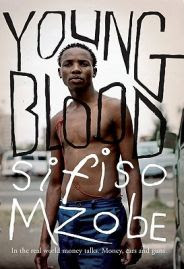

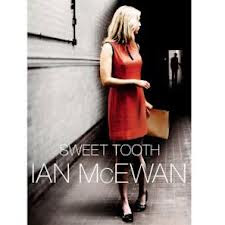
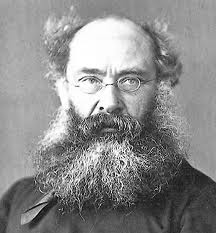 It was in the very dark and distant old days, before this blog was begun, when the earth was still hot, and etc, that I began on Trollope’s series. I think I started out of order with the Barchester novels, and then moved on to the Pallisers; and THE PRIME MINISTER’S CHILDREN is the last. Now all that lies before me is his stand-alone single books, re-reading of the series in retirement, and of course sad and lonely death.
It was in the very dark and distant old days, before this blog was begun, when the earth was still hot, and etc, that I began on Trollope’s series. I think I started out of order with the Barchester novels, and then moved on to the Pallisers; and THE PRIME MINISTER’S CHILDREN is the last. Now all that lies before me is his stand-alone single books, re-reading of the series in retirement, and of course sad and lonely death. 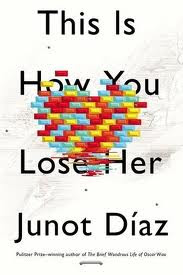 Like Edith Wharton, Junot Diaz is clearly working through some powerful personal issues. Almost every single one of these stories is about regret for infidelity, and is full of a kind of steaming pain, while also being strangely hilarious.
Like Edith Wharton, Junot Diaz is clearly working through some powerful personal issues. Almost every single one of these stories is about regret for infidelity, and is full of a kind of steaming pain, while also being strangely hilarious. 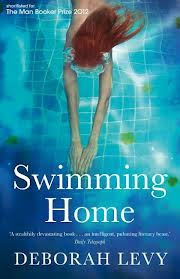
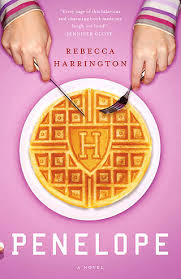 This is a book about the Harvard experience by someone recently graduated from Harvard. It begins well; here is the first description of the central character: “Penelope Davis O’Shaunessy, an incoming Harvard freshman of average height and lank hair,” which I found entertaining.
This is a book about the Harvard experience by someone recently graduated from Harvard. It begins well; here is the first description of the central character: “Penelope Davis O’Shaunessy, an incoming Harvard freshman of average height and lank hair,” which I found entertaining.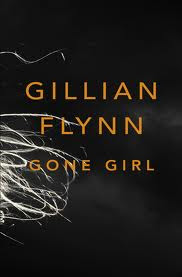 It’s a heroic moment for this blog! Somehow, it appears that without planning to, I have just read eight books in a row by women! This has never happened before. Nothing even close – last year hardly a third of the year’s books were by women. I’ve felt guilty about it, but not guilty enough to make a change. I guess it’s because in the past I mostly read dead people, and most women currently dead were too busy with the misery of cooking and cleaning and having mountains of babies to have time to write while they were alive. But now that I’m reading living people, women with labour-saving devices and birth control are showing up in my library. Well done feminism.
It’s a heroic moment for this blog! Somehow, it appears that without planning to, I have just read eight books in a row by women! This has never happened before. Nothing even close – last year hardly a third of the year’s books were by women. I’ve felt guilty about it, but not guilty enough to make a change. I guess it’s because in the past I mostly read dead people, and most women currently dead were too busy with the misery of cooking and cleaning and having mountains of babies to have time to write while they were alive. But now that I’m reading living people, women with labour-saving devices and birth control are showing up in my library. Well done feminism. 
